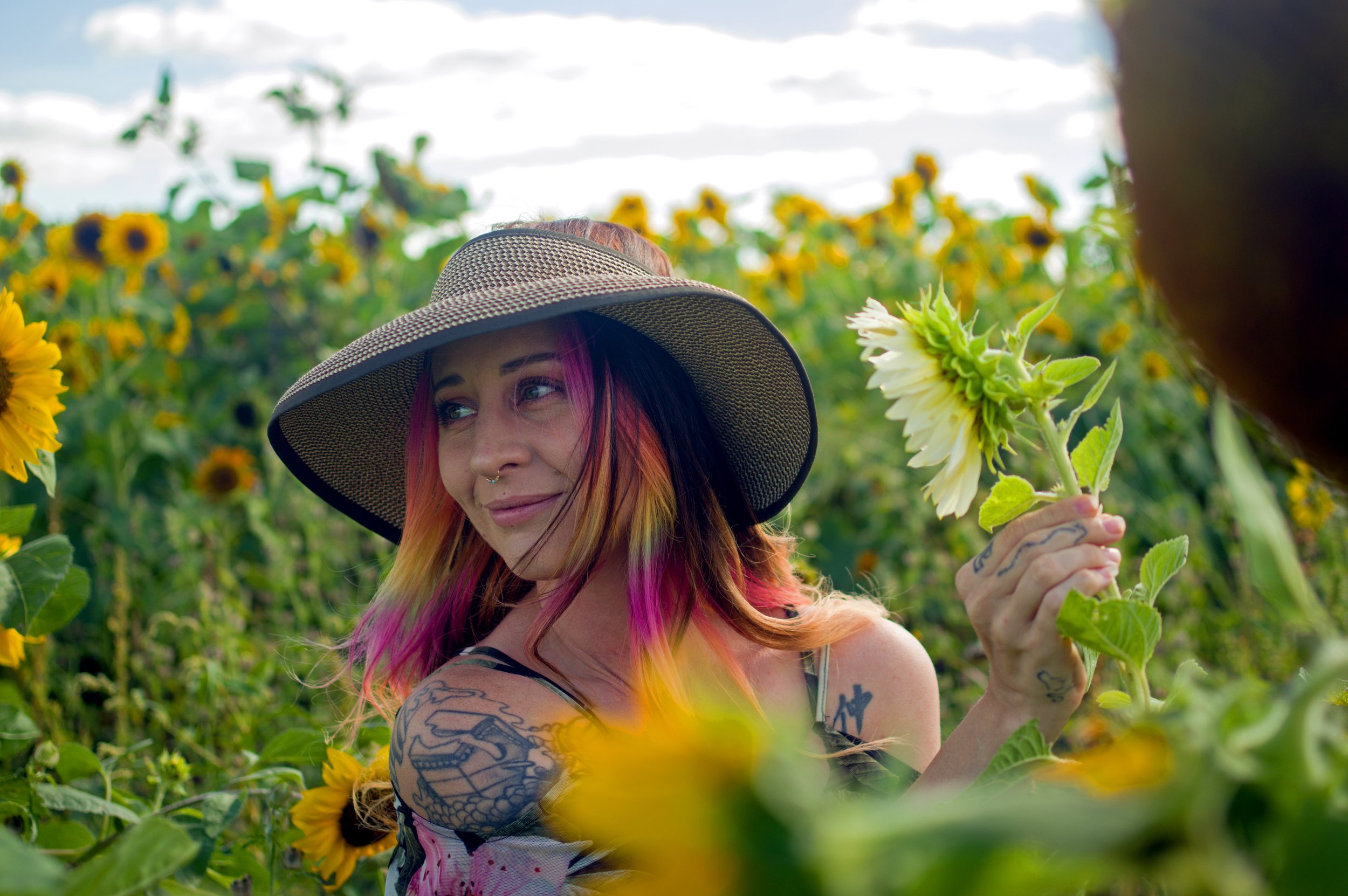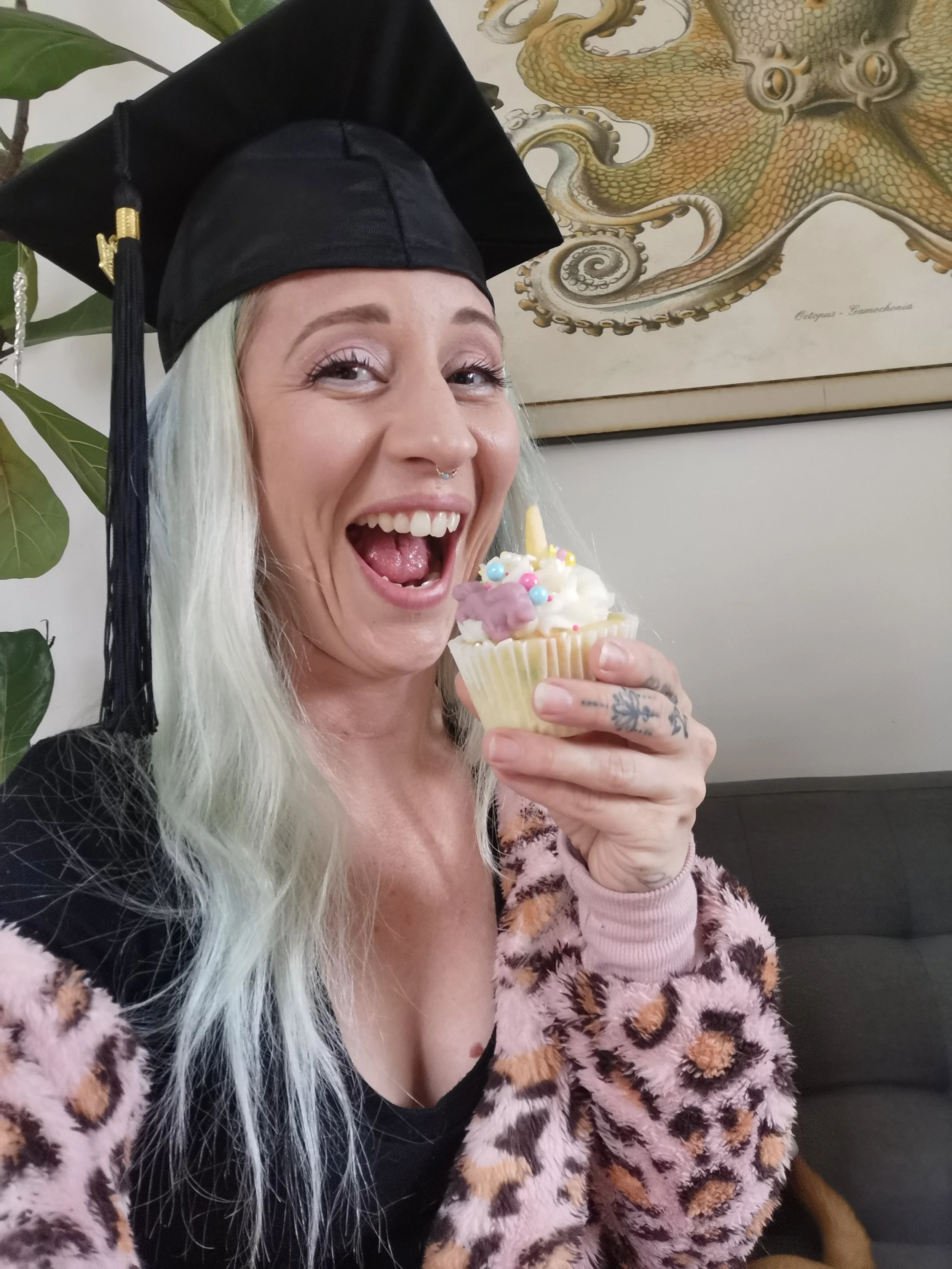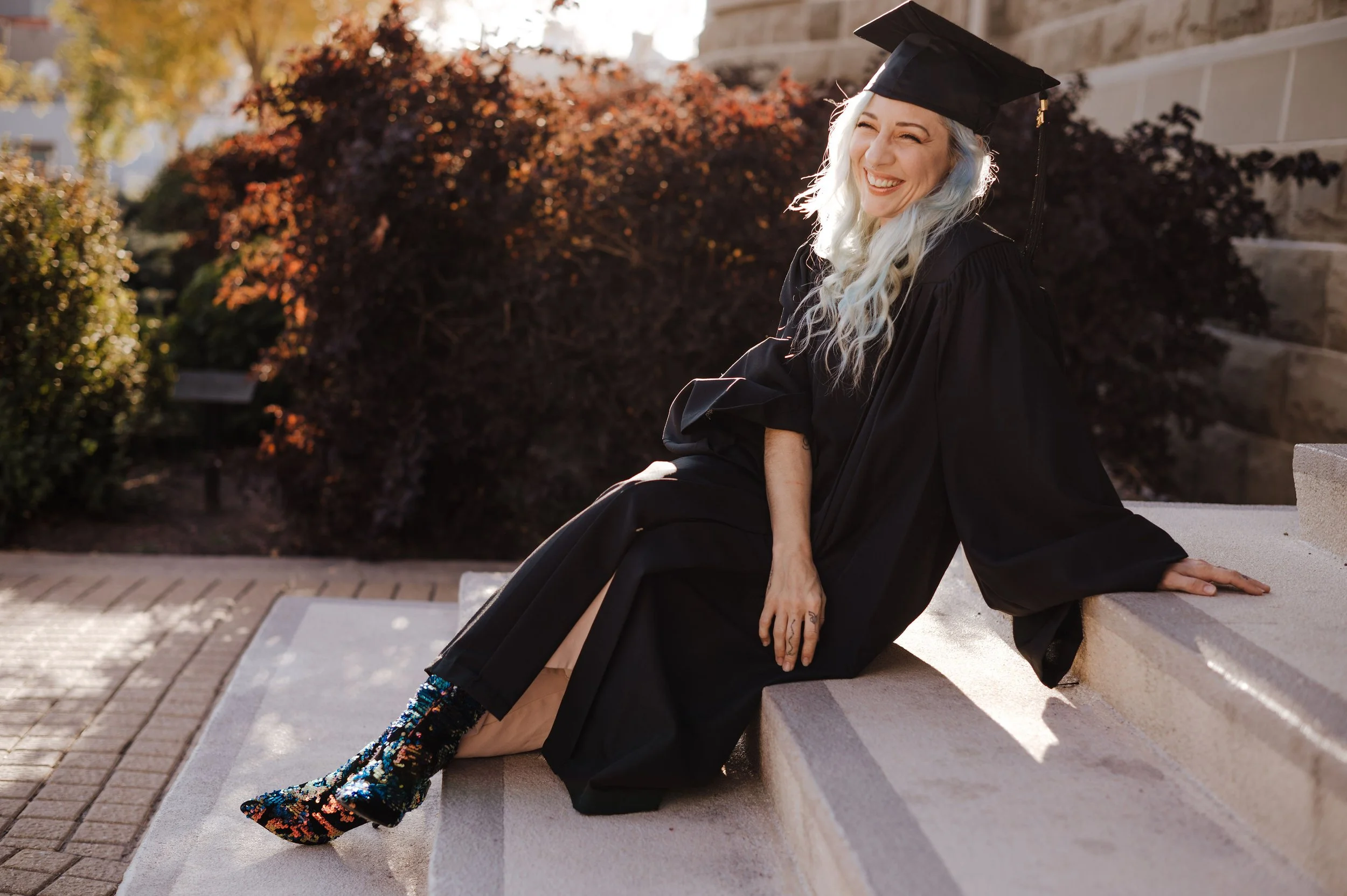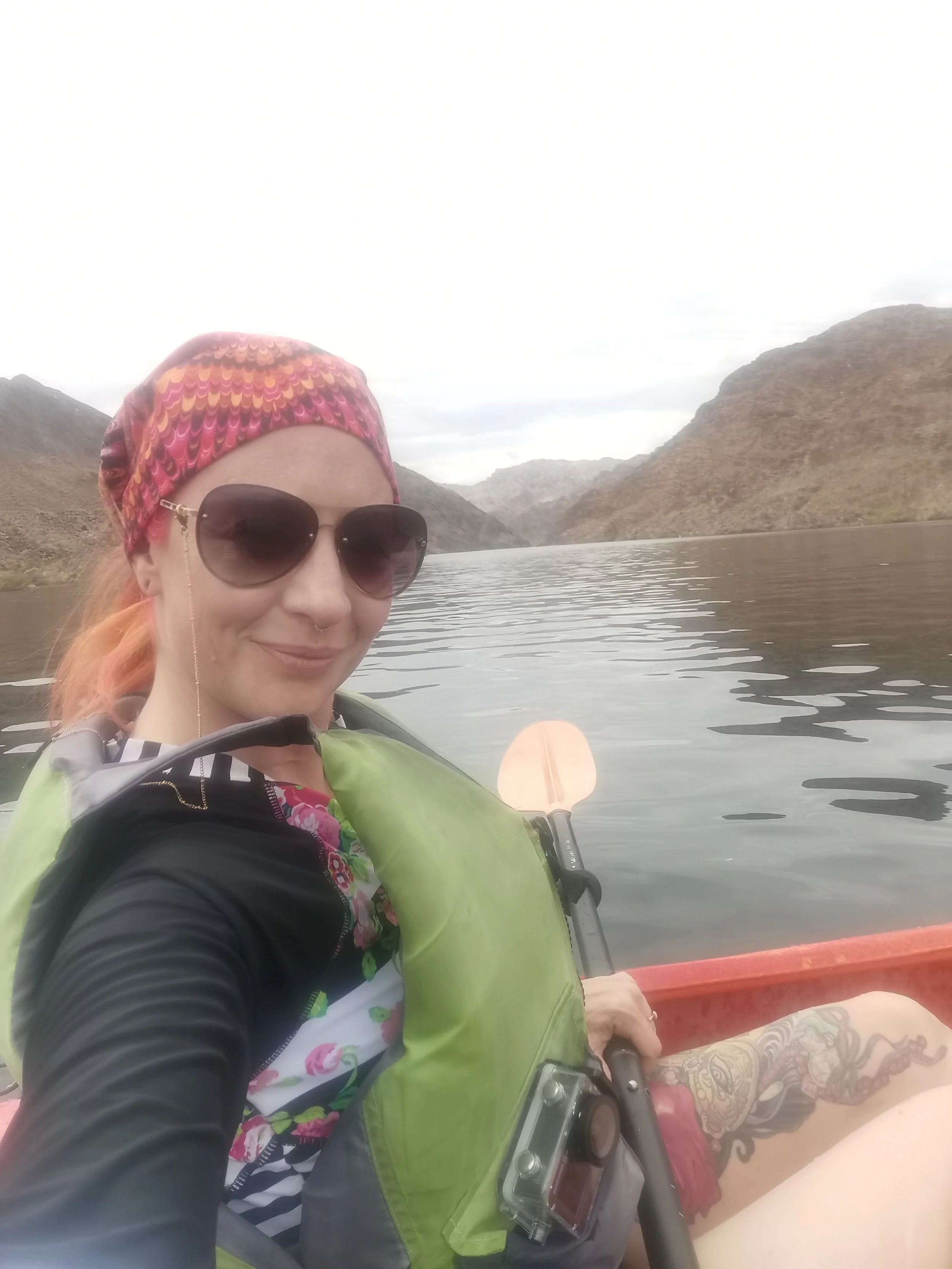From Unhoused to Thriving: Amanda’s Journey with Vocational Rehabilitation
Amanda sits in a field of sunflowers, wearing a sun hat overtop her pink, yellow and orange hair.
Amanda Legris first learned about Manitoba Possible when she was fighting to get her life back.
She was living in an unsafe home and had a life-changing injury.
The former restaurant manager had sustained a serious injury that made her unable to do the demanding, physical work that hospitality required. Lost and unsure of how to re-enter the workforce in an entirely new field, Amanda spent some of her time teaching English at the Immigration Centre. This led her to a new dream of becoming a teacher.
Tracey, her Manitoba Possible Counsellor, supported this dream. Tracey knew that Amanda’s intelligence, enthusiasm and passion would make her a great educator, so she helped Amanda enroll in the Vocational Rehabilitation (VR) and Employment Preparation Centre (EPC) programs at the then Society for Manitobans with Disabilities.
The VR program assists adults with disabilities to plan, prepare for, attain and maintain gainful employment, including developing educational programs and supporting people to complete degrees and diplomas. The EPC provides assessment services, employment services, and employment support, like resume development, interview preparation and on-site support for on-the-job training. There is support for getting tuition supplemented, too.
Amanda takes a selfie with a cupcake wearing her graduation cap and a big grin.
“My goal, in the beginning, was just to get back to work. I was not aware that there was a tuition program. It wasn’t until I walked in and talked to Tracey that I discovered just how much opportunity there was. And the second I realized there was a chance that I could get my tuition paid for, I had a one-track mind.”
As Amanda was getting started on her employment journey and preparing to go back to school, she struggled with housing. She became unhoused and unable to find safe, affordable and accessible housing.
“Living in Canada, it’s not something we think will happen. We assume that if we go through something like this, the government will help you. But that’s not true. One of the biggest hurdles is finding appropriate housing that is safe and clean and gives you a space to start to heal and learn. And for many years, I didn’t have that. It took me four years to find an apartment,” Amanda shared.
It wasn’t until September 2020, during the pandemic, that Amanda finally found a safe space and was ready to go back to school.
Of course, the pandemic presented its own problems. Teaching suddenly seemed like an unattainable dream – teaching jobs were scarce, and students were no longer in school. As a student herself, this was actually a boon for Amanda. Taking remote classes was a lot easier and more accessible for her with her disability. She began to question what direction to go in instead of pursuing education. As an English major, she knew she loved to tell stories through words. It was part of her drive to become a teacher. So, as she explored other options, she realized that maybe social media strategy and management allowed her to gain the level of creativity that she craved.
Amanda leans back on some steps with a big smile, wearing a black graduation cap and robes.
Amanda went back to work in two parts – first, she landed a job as an Assistant Manager at Don’s Photo. She felt she needed to make sure her body could do a full day of work before launching a new career in social media. And Don’s Photo was a great fit.
“They were 100% willing to work with my disability. They understood my limitations and were fabulous about it. Even so, the first 9 months were really difficult. I had hoped that I could go back to work, and everything would be okay. I’m not very good at recognizing my own limitations. And if it hadn’t been for the staff there, I would have hurt myself again. But everyone helped. I gained the realization that all I had to do was disclose my disability and people would actually help me.”
Disclosing was hard at first, as Amanda’s pride got in the way. The people at the EPC helped Amanda craft how she could disclose some of her symptoms in a way that made her feel confident. Even though it was hard, it was worth it.
“You should always disclose because if the position and the people that you’re working with are worth it, they will support you and will always be there to help you or back you up. If you disclose and they give you any sort of blowback, then it’s not the position for you.”
A selfie of Amanda, in sunglasses with a bandana around her hair, wearing a green life jacket and sitting in a red kayak on the Colorado River.
Besides disclosing a disability, Amanda has one more sage piece of advice, this time aimed at Manitobans who want to be more inclusive and accessible: “Never assume. You can’t see my disability. Don’t ever make assumptions about a person’s ability.”
After her stint at Don’s Photo and upon gaining her Digital and Social Media Marketing certificate, Amanda applied for 63 different jobs. The industry was booming during the pandemic, but she finally landed a job at Ricki’s Canada as a Social Media Specialist. She loves the creativity and flexibility of her work and has a real passion for her future.
“I had dreamed of kayaking the Colorado River for some time and this year, for my 40th birthday, I made that dream a reality! It was a gorgeous day, perfect weather, and I was able to share the experience with my best friend,” Amanda said. Her love for the outdoors has also inspired her to search for freelance work with outdoor companies.
“I love the outdoors and being in nature helped me get through a lot over the years,” she shared.




